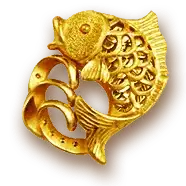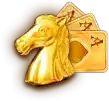Nakbon: Platform Slot Online Terpercaya dengan Pelayanan Terbaik dan Tercepat!
Nakbon adalah platform slot online terpercaya, telah menjadi pilihan utama bagi para pemain slot online di Indonesia, Nakbon Login sangat mengutamakan keamanan, kenyamanan, dan menyediakan peluang menang besar, Situs Nakbon menawarkan berbagai fitur unggulan membuat pengalaman bermain slot online semakin menyenangkan dan menguntungkan. Dengan koleksi game slot online terbaik dari provider ternama, Nakbon memberikan akses ke dunia hiburan digital nan penuh peluang keuntungan.
Sebagai platform slot online terpercaya, Nakbon tidak hanya sekadar tempat bermain slot online, tetapi juga menjadi sarana bagi pemain untuk mendapatkan keuntungan maksimal. Dari bonus melimpah, promo menarik, hingga peluang jackpot progresif, Dengan mengakses Nakbon Login setiap pemain memiliki kesempatan untuk meraih kemenangan besar. Selain itu, layanan 24 jam nonstop dan transaksi yang aman menjadikan Nakbon pilihan nan tepat bagi siapa saja nan ingin bermain slot online dengan mudah dan nyaman.
Apa Saja yang Bisa Didapatkan di Nakbon?
Beragam Pilihan Game Slot Online Terbaik Nakbon menyediakan koleksi game slot online dari berbagai provider ternama seperti Pragmatic Play, PG Slot, Nolimit City, Jili Slot, dan Ask Slot online. Dengan tema nan beragam, setiap pemain slot online dapat menemukan game favorit mereka nan sesuai dengan selera dan strategi bermain. game slot di Nakbon mencakup berbagai fitur seperti free spins, bonus, dan jackpot progresif. Nakbon selalu menghadirkan inovasi terbaru dalam koleksi gamenya, memastikan pemain tidak pernah kehabisan pilihan nan menarik. Pilihan slot di Nakbon dirancang untuk memberikan pengalaman bermain nan menyenangkan sekaligus menguntungkan. Bonus dan Promo Menarik serta masih banyak lagi di Nakbon.
Promo ini dirancang untuk memberikan nilai tambah bagi setiap taruhan nan dipasang. Dengan adanya promo rutin di Nakbon, pengalaman bermain slot menjadi lebih menguntungkan. Pemain baru maupun lama berkesempatan untuk menikmati berbagai promo menarik ini di Nakbon, Tidak hanya itu, Nakbon juga memberikan bonus spesial untuk acara-acara tertentu nan dapat meningkatkan peluang pemain untuk meraih kemenangan besar. Bonus tambahan di Nakbon memastikan setiap pemain memiliki peluang lebih besar untuk memenangkan jackpot besar. Jackpot Progresif Kesempatan untuk memenangkan hadiah besar melalui fitur jackpot progresif nan tersedia di banyak game slot di Nakbon.
Jackpot progresif di Nakbon terus bertambah setiap kali pemain memasang taruhan, memberikan potensi kemenangan fantastis bagi nan beruntung. Banyak pemain telah membuktikan kemenangan besar ini di Nakbon, menjadikan platform ini sebagai pilihan utama untuk pemain nan mencari jackpot besar. Nakbon selalu memastikan bahwa fitur jackpotnya memberikan peluang terbaik bagi setiap pemain untuk meraih hadiah fantastis dengan Layanan Pelanggan Profesional Tim customer service dari Slot Online Nakbon siap membantu Anda 24 jam sehari, memastikan semua kebutuhan dan pertanyaan Anda terjawab dengan cepat. Baik itu masalah teknis, informasi promosi, atau panduan bermain, layanan pelanggan Nakbon selalu siaga untuk memberikan solusi terbaik. Dukungan pelanggan nan profesional di Nakbon memberikan rasa percaya diri bagi pemain untuk terus bermain tanpa khawatir.
Daftar Provider Slot yang Tersedia di Nakbon
Nakbon bekerja sama serta berbagai provider slot terkemuka nan menyediakan game berkualitas tinggi. Berikut adalah daftar provider nan tersedia di Nakbon beserta game populer mereka:
Pragmatic Play
Pragmatic Play terkenal serta game nan seru dan RTP tinggi. Berikut adalah sepuluh permainan populer dari provider ini:
- Gates of Olympus: Permainan serta tema mitologi Yunani ini memiliki fitur multiplier hingga 500x dan free spins, menawarkan peluang besar untuk menang besar.
- Sweet Bonanza: Permainan ini menawarkan mekanisme "tumble" di mana simbol nan menang digantikan oleh simbol baru, menciptakan peluang kemenangan beruntun.
- The Dog House Megaways: Menampilkan format Megaways serta 117.649 cara untuk menang, permainan ini menjadi favorit penggemar game bertema hewan.
- Wild West Gold: Berlatar di era koboi, permainan ini menawarkan sticky wilds dan free spins untuk kemenangan besar.
- Big Bass Bonanza: Bertema memancing, pemain dapat memenangkan hadiah besar melalui fitur free spins dan pengumpulan simbol ikan.
- Buffalo King Megaways: Permainan ini menampilkan alam liar Amerika serta format Megaways dan potensi kemenangan besar melalui free spins.
- Madame Destiny Megaways: serta tema ramalan, permainan ini menawarkan hingga 25x multiplier di fitur free spins.
- Fruit Party 2: game bertema buah ini menawarkan fitur cluster pays dan multiplier hingga 256x.
- Power of Thor Megaways: Mengusung tema mitologi Nordik, permainan ini memiliki fitur hammer wilds nan menambah peluang kemenangan.
- Chilli Heat: Bertema Meksiko, permainan ini menawarkan fitur respin untuk mengumpulkan simbol uang dan mendapatkan hadiah besar.
PG soft
PG soft dikenal dengan grafis unik dan mekanisme inovatif. Berikut sepuluh permainan populernya:
- Mahjong Ways: game bertema mahjong ini memiliki cascading reels dan multiplier nan meningkat setiap kemenangan berturut-turut.
- Lucky Neko: Simbol kucing keberuntungan membawa multiplier hingga 30x di ronde free spins.
- Candy Burst: game penuh warna serta fitur roket dan bom untuk kombinasi kemenangan besar.
- Treasure of Aztec: Petualangan di piramida serta fitur multiplier nan terus meningkat selama free spins.
- Dragon Hatch: Simbol naga memberikan fitur khusus seperti cascading wins dan bonus besar.
- Ganesha Fortune: game bertema dewa Hindu ini menawarkan 32.400 cara untuk menang.
- Heist Stakes: Berlatar pencurian, permainan ini memiliki fitur expanding wilds yang menambah peluang menang besar.
- Fortune OX: Mengusung tema shio sapi, permainan ini menawarkan multiplier hingga 10x di fitur bonus.
- Jack Frost's Winter: Permainan bertema musim dingin serta expanding reels dan free spins.
- Leprechaun Riches: Bertema legenda Irlandia, permainan ini menawarkan multiplier dan cascading wins.
Nolimit City
Nolimit City menawarkan tema unik dan mekanisme inovatif. Berikut sepuluh permainan populernya:
- Fire in the Hole: serta tema tambang emas, permainan ini menawarkan fitur cascading reels dan xBomb multipliers.
- San Quentin xWays: Permainan bertema penjara serta mekanisme xWays yang menciptakan peluang menang besar.
- Deadwood: serta latar Wild West, permainan ini memiliki fitur Duel at Dawn yang meningkatkan multiplier.
- East Coast vs West Coast: Bertema perang geng, permainan ini memiliki lima fitur bonus menarik.
- Tombstone: game klasik Wild West serta sticky wilds dan free spins.
- Punk Rocker: game bertema musik punk dengan mekanisme xWays yang inovatif.
- Barbarian Fury: Permainan bertema prajurit barbar dengan stacked wilds dan free spins.
- Dragon Tribe: Bertema naga, permainan ini memiliki fitur xNudge yang menambah peluang menang besar.
- El Paso Gunfight: game Wild West ini menawarkan lima mode bonus yang unik.
Jili game
Jili game menghadirkan permainan yang menarik untuk pemula maupun profesional. Berikut sepuluh permainan terbaiknya:
- Golden Empire: Dengan tema kekaisaran emas, permainan ini memiliki jackpot progresif besar.
- Chin Shi Huang: Bertema kaisar Tiongkok, permainan ini memiliki expanding wilds untuk kemenangan besar.
- Lucky Goldbricks: game bertema kekayaan dengan fitur respin yang menguntungkan.
- Jungle King: Petualangan di hutan dengan multiplier besar di ronde bonus.
- Bubble Beauty: game bertema bawah laut dengan visual yang menenangkan.
- War of Dragons: Permainan bertema naga dengan fitur battle mode untuk hadiah besar.
- Crazy Hunter: game bertema petualangan berburu harta karun.
- Fortune Gems: game tiga gulungan dengan fitur respin yang menarik.
- Sea Hunter: game bertema laut dengan fitur bonus besar.
- Pharaoh Treasure: Permainan bertema Mesir dengan jackpot progresif.
Ask game
Ask game menawarkan pengalaman bermain inovatif. Berikut sepuluh permainan terbaiknya:
- Wild Fortune: game dengan simbol wild yang meningkatkan peluang menang besar.
- Mystic Cave: game bertema tambang dengan jackpot progresif.
- Treasure Hunt: Fitur free spins dan expanding wilds membuat permainan ini menarik.
- Kingdom of Heroes: Bertema kerajaan dengan fitur multiplier besar.
- Royal Diamond: Bertema kemewahan dengan bonus diamond untuk hadiah besar.
- Golden Treasures: Permainan bertema harta karun dengan fitur jackpot progresif.
- Adventure Quest: game bertema petualangan dengan fitur bonus menarik.
- Lucky Miner: game bertema penambangan emas dengan multiplier besar.
- Magic Forest: Permainan bertema hutan dengan visual memukau dan fitur free spins.
- Crown Jewels: game bertema perhiasan dengan peluang kemenangan besar.
Dengan beragam provider ini, Nakbon memastikan pemain memiliki pilihan permainan yang tak terbatas.
Ketahui Istilah Didalam Permainan Slot
Permainan slot online slot Nakbon Terpercaya menjadi semakin populer berkat kemudahan akses dan pengalaman bermain yang menghibur. Namun, untuk memahami dan memaksimalkan pengalaman bermain, penting bagi pemain untuk mengetahui istilah-istilah umum yang sering digunakan. Istilah ini tidak hanya membantu dalam memahami aturan permainan, tetapi juga memungkinkan pemain untuk membuat keputusan yang lebih baik. Beberapa istilah dasar seperti paylines, RTP, dan scatter sering muncul di hampir setiap permainan slot Nakbon Terpercaya . Memahami istilah-istilah ini adalah langkah pertama untuk menjadi pemain yang lebih cerdas dan strategis.
- Paylines: garis pembayaran adalah pola yang menentukan kemenangan pemain dalam permainan game. Biasanya, slot modern slot Nakbon Terpercaya memiliki lebih dari satu payline, bahkan hingga ratusan atau ribuan. Ketika simbol-simbol tertentu sejajar di sepanjang payline yang aktif, pemain memenangkan hadiah sesuai tabel pembayaran. Ada slot dengan payline tetap, di mana semua garis aktif setiap putaran, dan ada juga yang memungkinkan pemain memilih jumlah garis yang diaktifkan. Pemahaman tentang paylines slot Nakbon Terpercaya membantu pemain merencanakan taruhan dengan lebih baik dan memaksimalkan peluang menang.
- RTP (Return to Player): sebuah persentase teoretis dari total taruhan yang dikembalikan kepada pemain dalam jangka panjang. Misalnya, permainan dengan RTP 96% berarti pemain bisa berharap mendapatkan kembali 96% dari taruhan mereka setelah bermain untuk waktu yang lama. Semakin tinggi RTP slot Nakbon terpercaya , semakin baik peluang pemain untuk mendapatkan kemenangan. Mengetahui RTP dari sebuah permainan sangat penting, terutama bagi pemain yang ingin memilih game dengan keuntungan terbaik.
- Scatter dan Wild Symbols Scatter: dua simbol penting dalam permainan slot Nakbon terpercaya. Scatter biasanya memicu fitur bonus seperti free spins atau mini-game, tanpa harus berada pada payline tertentu. Wild, di sisi lain, berfungsi sebagai pengganti simbol lain untuk membantu menciptakan kombinasi kemenangan. Memahami fungsi scatter dan wild memungkinkan pemain memanfaatkan fitur ini untuk meningkatkan peluang menang slot Nakbonterpercaya .
- Volatilitas Volatilitas: istilah yang menggambarkan tingkat risiko dan variasi kemenangan dalam permainan permainan. Slot dengan volatilitas rendah slot Nakbon terpercaya cenderung memberikan kemenangan kecil namun sering, sementara game dengan volatilitas tinggi menawarkan kemenangan besar tetapi lebih jarang. Memilih jenis volatilitas yang sesuai dengan gaya bermain Anda adalah strategi penting untuk mengelola bankroll dengan bijak saat bermain slot Nakbon terpercaya.
- Jackpot Progresif: fitur khusus yang menawarkan hadiah besar yang terus meningkat seiring waktu. Setiap taruhan yang dipasang pemain slot Nakbon Login akan berkontribusi pada jackpot ini, yang akhirnya bisa dimenangkan oleh satu pemain beruntung. Slot dengan jackpot progresif sering kali menjadi favorit slot Nakbon Login karena menawarkan peluang untuk meraih kemenangan yang mengubah hidup. Namun, pemain perlu memahami bahwa jenis permainan ini biasanya memiliki persyaratan taruhan maksimum untuk memenuhi syarat mendapatkan jackpot.
Dengan memahami istilah-istilah ini, pemain slot Nakbon Login dapat lebih percaya diri saat bermain slot online. Pengetahuan ini tidak hanya membuat permainan lebih menyenangkan, tetapi juga meningkatkan peluang untuk memenangkan hadiah besar. Mulailah petualangan game Anda slot Nakbon Login dengan memahami setiap istilah dan manfaatkan informasi ini untuk menjadi pemain yang lebih cerdas.
FAQ: Paling Sering Ditanyakan Seputar Nakbon
Apa Itu Slot?
Slot adalah permainan kasino digital yang populer situs Nakbon, di mana pemain menekan tombol putar untuk memutar gulungan berisi simbol-simbol. Tujuannya adalah mendapatkan kombinasi simbol tertentu pada garis pembayaran (payline) untuk memenangkan hadiah. situs Nakbon, permainan slot dirancang dengan berbagai tema menarik dan fitur canggih untuk memberikan pengalaman bermain yang menyenangkan dan menguntungkan.
Apakah Slot Legal?
Legalitas permainan slot bergantung pada lokasi tempat pemain berada. Nakbon adalah platform resmi dengan lisensi yang valid, memastikan permainan yang ditawarkan legal dan aman. Pemain situs Nakbon dapat menikmati slot tanpa khawatir akan masalah legalitas karena platform ini beroperasi sesuai dengan regulasi perjudian internasional.
Apakah Slot Aman?
Slot Nakbon sangat aman untuk dimainkan. Dengan teknologi enkripsi tingkat tinggi, semua data pemain dilindungi dari ancaman luar. Selain itu, Nakbon hanya menawarkan permainan dari provider terpercaya yang telah teruji keamanannya. Keamanan ini memastikan pemain dapat fokus pada permainan tanpa khawatir akan risiko privasi atau penipuan.
Bagaimana Cara Menang di Slot Online situs Nakbon?
- Pilih Game dengan Slot Rtp Tertinggi:Nakbon menyediakan informasi lengkap tentang RTP (Return to Player) untuk setiap permainan. Pilih slot dengan RTP tinggi untuk meningkatkan peluang kemenangan.
- Manfaatkan Bonus: Gunakan berbagai bonus seperti free spins, cashback, dan bonus deposit yang ditawarkan Nakbon untuk meningkatkan modal bermain.
- Kelola Modal dengan Bijak: Tetapkan batas anggaran harian Anda dan hindari bermain di luar kemampuan finansial.
Bagaimana Cara Menarik Kemenangan situs Nakbon?
Penarikan kemenangan situs Nakbon sangat mudah dan cepat. Anda dapat menggunakan berbagai metode pembayaran seperti transfer bank, e-wallet, atau kartu kredit. Nakbon memastikan proses penarikan dilakukan dengan cepat dan transparan, memberikan kemudahan bagi pemain untuk menikmati hasil kemenangan mereka.
Apakah Ada Batas Taruhan situs Nakbon?
Setiap permainan situs Nakbon memiliki batas taruhan minimum dan maksimum yang dapat disesuaikan dengan kebutuhan pemain. Fleksibilitas ini memungkinkan pemain dengan berbagai tingkat anggaran untuk tetap menikmati permainan slot Nakbon tanpa hambatan.
Apa Itu RTP?
RTP (Return to Player) adalah persentase teoretis dari total taruhan yang dikembalikan kepada pemain dalam jangka panjang. Slot Nakbon memiliki RTP yang bervariasi, dan informasi ini tersedia untuk membantu pemain memilih permainan yang memberikan peluang terbaik. Semakin tinggi RTP, semakin besar peluang pemain untuk menang.
Apa Itu Slot Gacor?
Slot gacor adalah istilah yang sering digunakan untuk menggambarkan mesin slot Nakbon yang cenderung memberikan kemenangan lebih sering dan mudah. Banyak pemain situs Nakbon mencari slot gacor untuk meningkatkan peluang mereka memenangkan hadiah besar. Meski demikian, kemenangan tetap dipengaruhi oleh keberuntungan dan strategi bermain.
Mengapa Memilih Nakbon untuk Bermain Slot?
Nakbon adalah platform terpercaya dengan berbagai keunggulan:
- Koleksi permainan dari provider ternama seperti Pragmatic Play, PG Slot, dan Nolimit City.
- Sistem keamanan canggih untuk melindungi data pemain.
- Bonus dan promosi menarik yang meningkatkan peluang menang.
- Layanan pelanggan 24/7 yang siap membantu.
Kesimpulan
Nakbon adalah pilihan terbaik bagi siapa saja yang ingin bermain slot online dengan nyaman, aman, dan menguntungkan. Dengan berbagai keunggulan seperti pilihan permainan lengkap, layanan 24 jam, bonus melimpah, dan sistem transaksi yang aman, Nakbon telah membuktikan diri sebagai platform slot online terpercaya. Bergabunglah dengan Nakbon sekarang dan rasakan pengalaman bermain slot online terbaik. Nikmati berbagai keuntungan menarik dan jadilah pemenang setiap harinya bersama Nakbon, platform slot terpercaya yang selalu memberikan yang terbaik untuk Anda!










